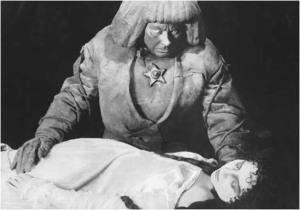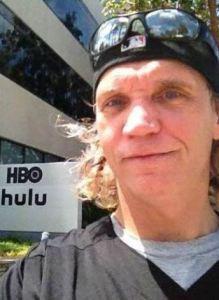This essay first appeared in Cliterati on January 18th; I have modified it slightly for time references and to fit the format of this blog.
 One would think that after a century of the motion picture as an art form, people would grasp that just because something appears on film does not make it real. Despite its name, even cinéma vérité is less than truthful; as in subatomic physics, even the mere presence of an observer changes the observational subject. And given that a self-professed “documentary” filmmaker still chooses what to film and what to edit out, whom to interview and whom to ignore, how to frame different viewpoints and what the narrator will say, no reasonable person could imagine that simply granting a production replete with exaggeration, distortion and outright lies the dignity of a “nonfiction” label actually has the power to make it so. Unfortunately, the majority of the population is anything but reasonable, and misnaming a drama a documentary or claiming that it is “based on a true story” is more than enough to convince them that real life is truthfully and objectively portrayed therein.
One would think that after a century of the motion picture as an art form, people would grasp that just because something appears on film does not make it real. Despite its name, even cinéma vérité is less than truthful; as in subatomic physics, even the mere presence of an observer changes the observational subject. And given that a self-professed “documentary” filmmaker still chooses what to film and what to edit out, whom to interview and whom to ignore, how to frame different viewpoints and what the narrator will say, no reasonable person could imagine that simply granting a production replete with exaggeration, distortion and outright lies the dignity of a “nonfiction” label actually has the power to make it so. Unfortunately, the majority of the population is anything but reasonable, and misnaming a drama a documentary or claiming that it is “based on a true story” is more than enough to convince them that real life is truthfully and objectively portrayed therein.
As you might expect, moral panics have often been amplified by such means, but the advent of cheap digital cameras and software-based editing has democratized the filmmaking process to such an extent that the first moral panic of the internet era, the “sex trafficking” hysteria, has been promoted thus to an unprecedented extent. So while the two most prominent examples of “sex trafficking” fetishism misrepresented as fact, namely Taken and Eden, are products of the professional moviemakers’ craft (the former a big-budget studio release, the latter a smaller-budget “independent”), there have also been a plethora of semi-professional and amateur films, ranging from small-budget to no-budget, which purport to tell the “truth about sex trafficking” to credulous, slack-jawed audiences who prefer their BDSM porn in disguised form. Much has been written about the fraud named Eden and the chief perpetrator of the scam, Chong Kim; applying the same scalpel to the body of low-end “sex trafficking” cinema soon results in a gory mess too graphic even for the slasher movies which appeal to roughly the same sensibilities as these so-called “documentaries”.
In just the past two years I’ve logged eight of these cheapies: Ente, Lot Lizard, Anna, Dirty Little Secret, The Making of a Girl, International Boulevard, Chosen and The Long Night; it’s entirely possible that there may have been others which escaped my notice. Then early last month I read reports of not one but three more, all in the same day. The headline for the first, 8 Days, alludes to the aforementioned blockbuster Taken, and the article itself seems to have been written by a Hollywood wannabe:
A new film based on actual events exposes the shocking secrets of Human Trafficking. If you think it isn’t happening in your hometown, you’re wrong…8 Days…is…based on a true story…a teen named Amber who comes from an affluent Texas family, goes to a…party where she gets drunk, is kidnapped, and later sold to pimps…“kids are targeted at the mall or the movies, parties and at school,” said Jaco Booyens, the film’s director. “In the movie, Amber was trafficked by a friend. A friend! They’re using people you know to create a comfort zone”…Booyens says the average age…is 12 years old…raped sometimes up to 20 or 30 times in a single day…Victims are often snatched from places such as a party, the mall or the movies, and often, sex traffickers pay someone who is friends with the teen to bring her to a party where they will take her…
Note the repetition, the use of familiar-but-bogus “facts”, and the director’s pretense that because something appears in his movie that somehow constitutes evidence of its reality. Note also that the story starts with what I call the “Profession of Faith”, the central creed of the “sex trafficking” cult, as does this one:
Filmmakers behind The Trafficking Life…want to get their point across that human trafficking is not just happening somewhere else. It’s become a big problem here at home…Diana Cisneros…is the center of a new documentary in which she shares the growing problem taking place in Kern County [California]…
Kern County is infamous for this kind of moral panic; it was one of the early centers of the Satanic Panic as well. But while fanatics claim that “sex trafficking happens everywhere”, the truth is that it’s sex trafficking hysteria that’s nearly omnipresent:
…A Path Appears investigates young women in America forced into a life of prostitution…in our own backyards — in Chicago and Nashville and Boston. The Department of Justice estimates that there are 300,000 children at risk of being trafficked into sexual slavery in the U.S…Ashley Judd and Nicholas Kristof are guided through the streets of Nashville by a woman who was first sold to a pimp by her mother at the age of 12, and then visit an example of a solution that works…sting operations cracking down on the buyers of sex…
 None of these fakumentaries take the trouble to investigate squat; as should be obvious from the repetition of prohibitionist lies in these articles, all they do is to parrot the same old nonsense about “children”, “pimps”, “sex slavery” and the like while infantilizing sex workers, demonizing clients, lionizing cops and celebrating criminalization. But when anything becomes as popular as these films have, it’s inevitable that life will start imitating art, at least in the minds of the corrupt:
None of these fakumentaries take the trouble to investigate squat; as should be obvious from the repetition of prohibitionist lies in these articles, all they do is to parrot the same old nonsense about “children”, “pimps”, “sex slavery” and the like while infantilizing sex workers, demonizing clients, lionizing cops and celebrating criminalization. But when anything becomes as popular as these films have, it’s inevitable that life will start imitating art, at least in the minds of the corrupt:
The…founder and owner of “Grandpa’s RV Productions,” David Delay, Sr., is accused of coaxing two teens into prostitution and then threatening to expose them on Facebook if they stopped working for him. Delay, 48, has been charged with a host of pimping-related crimes alongside Marysa Renee Comer, a 20-year-old woman accused of assisting in running the operation from their Lynnwood [Washington] apartment…an 18-year-old young woman…fell in love…with Comer, who began picking her up at school with Delay. The [young woman] began dating Comer and Delay, in an effort to make a life with Comer…they told [her] they were making a documentary about human trafficking and prostitution. “They stated it was best for her to be involved in the documentary by escorting so that she can know what it is really all about”…said [the] charging papers…Comer and Delay set up the encounters and took all the money she was paid…a subsequent search of prostitution advertisements by police supported [her] claims that she’d been taken around the country to work as an escort…
In other words, an actual criminal got the idea for his criminal acts from the propaganda put out by the people who pretend to be interested in fighting such exploitation; given that it happened in the state that’s most heavily invested in “sex trafficking” hysteria, it’s the kind of irony one might expect to find in a Hollywood screenplay.
Cut. Print.
